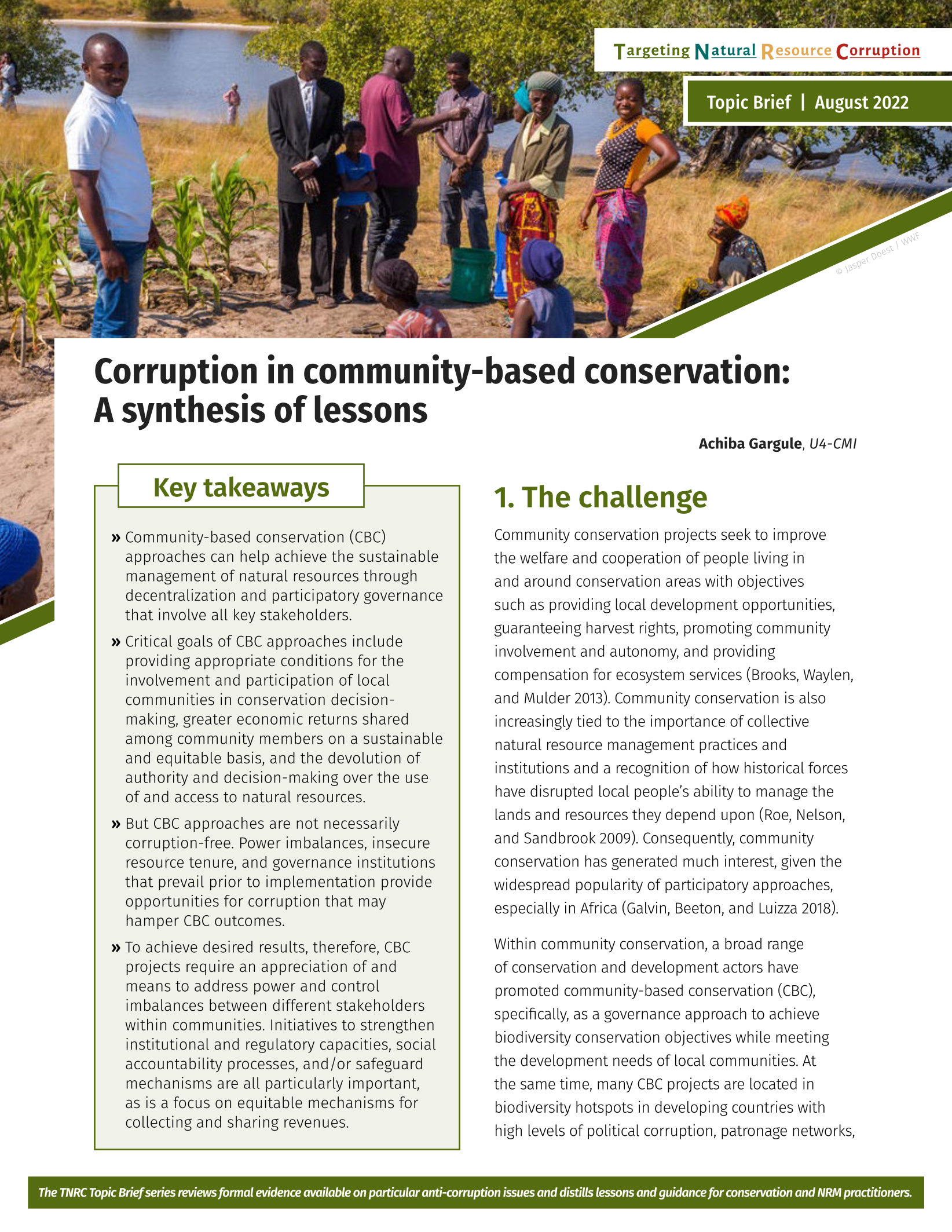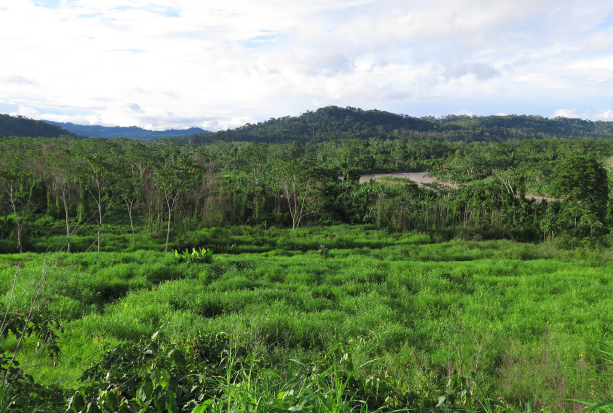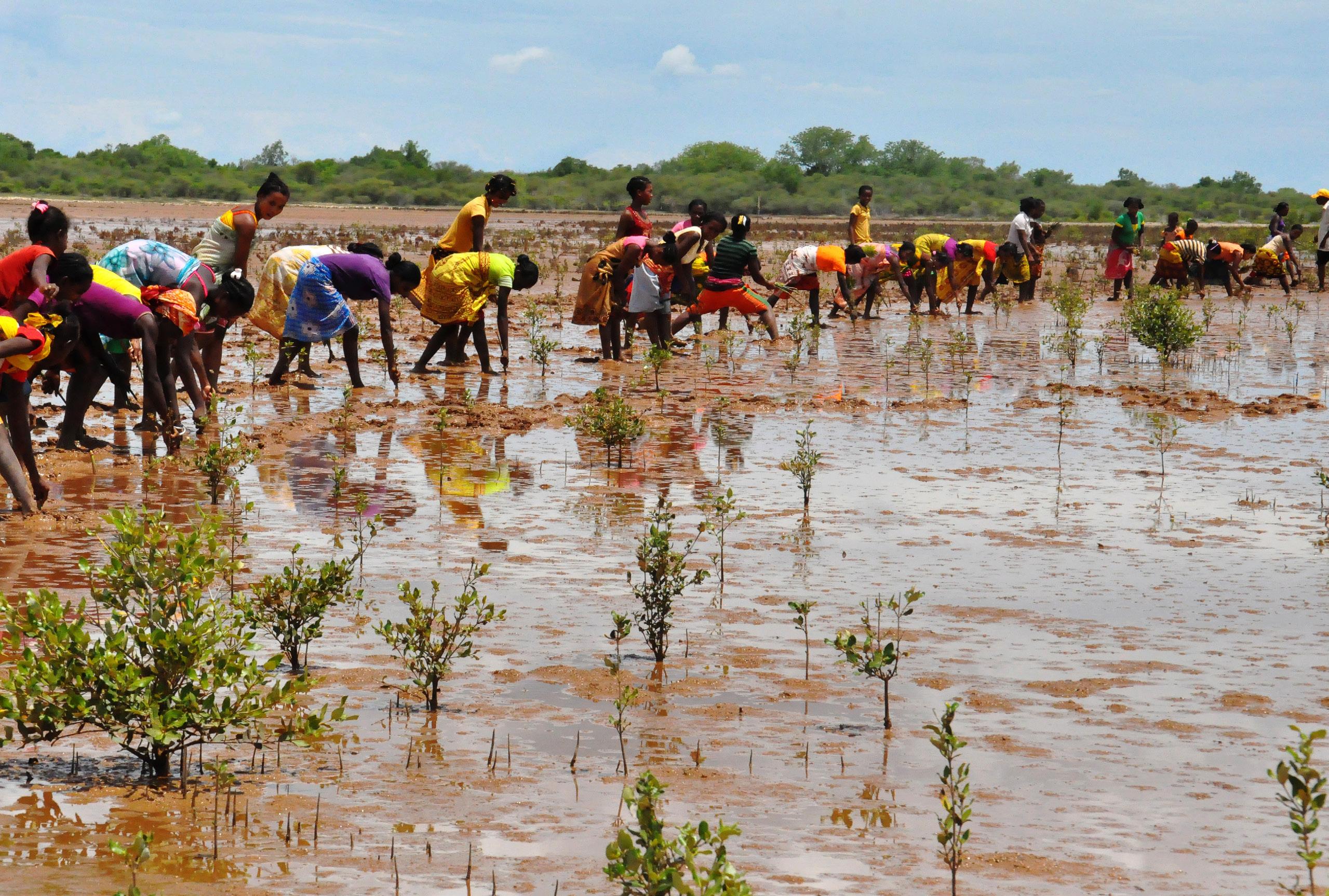Main points
- Community-based conservation (CBC) approaches can help achieve the sustainable management of natural resources through decentralization and participatory governance that involve all key stakeholders.
- Critical goals of CBC approaches include providing appropriate conditions for the involvement and participation of local communities in conservation decision-making, greater economic returns shared among community members on a sustainable and equitable basis, and the devolution of authority and decision-making over the use of and access to natural resources.
- But CBC approaches are not necessarily corruption-free. Power imbalances, insecure resource tenure, and governance institutions that prevail prior to implementation provide opportunities for corruption that may hamper CBC outcomes.
- To achieve desired results, therefore, CBC projects require an appreciation of and means to address power and control imbalances between different stakeholders within communities. Initiatives to strengthen institutional and regulatory capacities, social accountability processes, and/or safeguard mechanisms are all particularly important, as is a focus on equitable mechanisms for collecting and sharing revenues.




